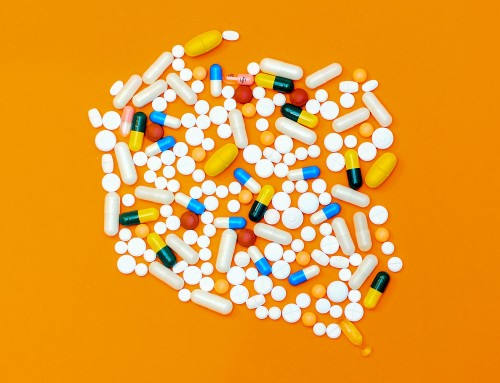Vitamin B12 FAQ’s
Vitamin B12 FAQ’s
Vitamin B12 is often quoted as a major mineral deficiency in people; especially in vegans/vegetarians as it is mainly found in animal products.
This article will aim to answer the most popular questions about vitamin B12 to give you a greater understanding of this product.
**Please note that supplement guidance is recommended if you are deficient in vitamin B12 or lack it in your diet and cannot boost levels if not deficient.**
What is it?
Vitamin B12 is a water soluble vitamin which has been shown to be a requirement for red blood cell production (1), Protein synthesis and the repair and maintenance of tissue cells. (2).
Is it effective?
To date there have been many proposed benefits to vitamin B12, however the studies have either not found a significant difference or have been poorly designed and further research is required. The proposed benefits that have not found any evidence includes, memory/cognitive performance (3), Cataracts (4), Sleep quality (5) or osteoporosis (6).
One thing that Vitamin B12 can be effective for is for a condition known as vitamin B12 anemia. Which leads to large red blood cells being produced, which affects its effectiveness.
Red blood cells are responsible for delivering all the nutrients, minerals, oxygen, cholesterol to all areas of the body. The symptoms that can occur with this condition include; weakness/tiredness, sore tongue, mouth ulcers and blurred vision. This condition can be treated with injections followed by tablets to restore vitamin levels.
How is it made?
There are two ways in which B12 is made, both natural and artificial.
Natural –
The natural form of B12 is known as methylcobalamin. The sources in which this can be found include meat, fish, eggs as well as vegan foods like marmite. When consumed this form can be used as is or can be converted into adenosylcobalamin, which is required for such functions as the metabolization of fats and amino acids in the body, (9).
Synthetic –
There are two Synthetic forms of Vitamin B12 which are known as Cyanocobalamin (generally in pill form) and Hydroxocobalamin. These types are not found naturally.
Once inside the body cyanocobalamin and Hydroxocobalamin gets converted into either methylcobalamin or adenosylcobalamin. Hydroxocobalamin is an injectable form which is used to treat severe deficiency.
Both types of B12 have been suggested to have a greater bioavailability than its natural form (7); however other factors can play a role including genetics, (8) and methylcobalamin has been found to stay longer in the system.
Cyanocobalamin is used in supplements as it can hold its stability really well, can store for an extended period and is inexpensive.
How much to take? (RDA)
The RDA for adults 19 or over is 2.4 micrograms a day, increasing slightly if pregnant or lactating, (10).
| Age | Male | Female | Pregnancy | Lactation |
| Birth to 6 months* | 0.4 mcg | 0.4 mcg | ||
| 7–12 months* | 0.5 mcg | 0.5 mcg | ||
| 1–3 years | 0.9 mcg | 0.9 mcg | ||
| 4–8 years | 1.2 mcg | 1.2 mcg | ||
| 9–13 years | 1.8 mcg | 1.8 mcg | ||
| 14–18 years | 2.4 mcg | 2.4 mcg | 2.6 mcg | 2.8 mcg |
| 19+ years | 2.4 mcg | 2.4 mcg | 2.6 mcg | 2.8 mcg |
| * Adequate Intake (AI) | ||||
When to take?
Vitamin B12 is a water soluble vitamin, which is recommended to take first thing in the morning, on an empty stomach so it has the whole day to do its job.
How to take it?
Vitamin B12 is available to be administered in many forms, including injection, orally, or even as a nose spray. For people with a severe B12 deficiency injections are the most effective and rapid way of improving levels. For general day to day use if not getting through a diet supplementing this vitamin is essential.
Side effects
There are several known side effects if deficient in vitamin B12, this includes nausea, vomiting and diarrhea. As we mentioned earlier B12 anaemia can cause issues with the red blood cells transportation capabilities, this can lead to the intensitines having limited access to oxygen which can lead to these symptoms mentioned above. There has also been the suggestion that Vitamin B12 can lead to weight gain, however there is little evidence to support this.
References
1 – d’Onofrio, G., Chirillo, R., Zini, G., Caenaro, G., Tommasi, M., & Micciulli, G. (1995). Simultaneous measurement of reticulocyte and red blood cell indices in healthy subjects and patients with microcytic and macrocytic anemia. Blood,85(3), 818-823.
2 – Fenech, M. (2001). The role of folic acid and vitamin B12 in genomic stability of human cells. Mutation Research/Fundamental and Molecular Mechanisms of Mutagenesis, 475(1), 57-67.
3 – Balk, E. M., Raman, G., Tatsioni, A., Chung, M., Lau, J., & Rosenberg, I. H. (2007). Vitamin B6, B12, and folic acid supplementation and cognitive function: a systematic review of randomized trials. Archives of internal medicine, 167(1), 21-30.
4 – Zhao, L. Q., Li, L. M., & Zhu, H. (2014). The effect of multivitamin/mineral supplements on age-related cataracts: a systematic review and meta-analysis. Nutrients, 6(3), 931-949.
5 – Ji, Xiaopeng, Michael A. Grandner, and Jianghong Liu. “The relationship between micronutrient status and sleep patterns: a systematic review.” Public health nutrition 20.4 (2017): 687-701.
6 – Macêdo, L. L. G. D., Carvalho, C. M. R. G. D., & Cavalcanti, J. C. (2017). Vitamin B12, bone mineral density and fracture risk in adults: A systematic review. Revista da Associação Médica Brasileira, 63, 801-809.
7 – Adams, J. F., Ross, S. K., Mervyn, L., Boddy, K., & King, P. (1971). Absorption of cyanocobalamin, coenzyme B12, methylcobalamin, and hydroxocobalamin at different dose levels. Scandinavian journal of Gastroenterology, 6(3), 249-252.
8 – Paul, C., & Brady, D. M. (2017). Comparative bioavailability and utilization of particular forms of B12 supplements with potential to mitigate B12-related genetic polymorphisms. Integrative Medicine: A Clinician’s Journal, 16(1), 42.
9 – Thakkar, K., & Billa, G. (2015). Treatment of vitamin B12 deficiency–Methylcobalamine? Cyancobalamine? Hydroxocobalamin?—clearing the confusion. European journal of clinical nutrition, 69(1), 1-2.
10 – Thiamin, R. (1998). Dietary Reference Intakes for Thiamin, Riboflavin, Niacin, Vitamin B6, Folate, Vitamin B12, Pantothenic Acid, Biotin, and Choline1.




